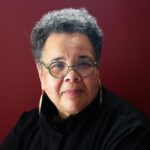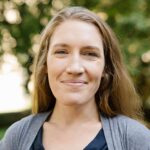Judaism
Syllabi - Topic: Judaism - 39 results
Select an item by clicking its checkboxA 2013 course by Zachary Braiterman at Syracuse University explores "core philosophical concepts and dynamics in the philosophical writings of Martin Buber and Franz Rosenzweig."
A 2017 course by Gary Arbino surveys "selections from Second Temple Jewish Literature."
A 2004 course by Jim Watts at Syracuse University traces "the history and literature of Second Temple Judaism by focusing on two key features: the Jerusalem Temple in history and in religious imagination, and the reinterpretation of Jewish tradition in the Dead Sea Scrolls. It will conclude by considering the developing role of scripture in religious thought and literature, to set the stage for interpreting the emergence of rabbinic Judaism and early Christianity."
A 2015 course by Geoffrey Claussen at Elon University analyzes "the historical teachings of the Jewish tradition on environmental issues, considering topics including the value of creation as well as traditional prohibitions on causing suffering to animals, wasting natural resources, and various forms of pollution." Special attention is accorded "contemporary Jewish attempts to respond to current environmental crises."
A course by Barbara von Schlegell at the University of Pennsylvania "focuses on Muslim women and the understanding of gender in Islam and in comparison with Jewish womenâs experience."
A 2013 course by Tyler Mayfield and Johanna W.H. van Wijk-Bos at Louisville Presbyterian Theological Seminary "critically examines Christian biblical interpretation in light of the Holocaust."
A course by Miriam Dean-Otting at Kenyon College "offers a comparative approach to the study of mysticism with a focus on Hinduism and Judaism."
A 1997 course by Ellen Umansky at Fairfield University surveys the "ways in which women have understood and experienced Judaism from the biblical period through the present."
A 2015 course by Lois E. Olena at The King's University on "anti-Semitism through the centuries and its origins."
A course by Margaret Olin at Yale University on "how people have imagined, constructed or enacted space in Jewish life from the period from the nineteenth century until now."
A 2011 course by Richard Marks at Washington and Lee University approaches "20th-century authors writing in Yiddish and Hebrew . . . as literary expressions of religious themes and as responses to the historical and religious crises of modern Jewish life in Europe, the United States, and Israel."
A course by Kevin Lewis at the University of South Carolina aims at "critically appraising meaning and method in films meant to stir reflection on potent material."
A course by James Diamond at the University of Waterloo explores "philosophical, theological . . . literary . . . and artistic attempts to deal with the issues the Holocaust raises."
A 2017 course by Geoffrey Claussen at Elon University "offers a historical and philosophical investigation of modern Jewish thought, focusing on influential Jewish thinkers writing in Christian-majority contexts in the 18th-21st centuries."
A 2003 course by Shawn Landres at the University of Judaism "invites students to think critically and comparatively about Judaism and Jewishness in contemporary North America" with a reliance on "qualitative social-scientific approaches, rather than theological, textual, or historical ones."
A 2016 course by Geoffrey Claussen at Elon University offers a historical perspective on "ancient and medieval texts about war in their original contexts, and then giving particular attention to modern Jewish thinking in various contexts."
A course by Michael Zank at Boston University on gender within Judaism.
A 2006 course by Jonathan Lawrence at Christ the King Seminary sets "the context for the emergence of the Christian church by exploring the origins and development of Judaism from the Babylonian Exile to the compilation of the Mishnah."
A 2003 course by Annette Reed at McMaster University surveys "the literary genres, socio-historical contexts, and characteristic beliefs of the classical Rabbinic literature, together with the main research tools, methodologies, and debates in the modern study thereof."
A 2013 course by David Ariel-Joel at Louisville Presbyterian Theological Seminary that surveys "the dominant values and practices of what became traditional Judaism."
A course by Stephen Wasserstrom at Reed College analyzes "Judaismâs understanding of itself by examining such central concepts as God, Torah and Israel. This central self-definition will then be tested by means of close readings of selected representative texts, and by investigating the range of Jewish history. In the final Unit we will study the rise of the State of Israel, the Holocaust, and American Jewish movements."
A course by Peter Haas at Vanderbilt University serves as an introduction to Judaism.
A 2010 course by Ira Chernus at the University of Colorado at Boulder provides " a basic introduction to the historical development of Judaism from its beginnings to the present day. We will focus on the religious experiences, worldviews, beliefs, behaviors, and symbols of the Jewish tradition, and on the historical forces--cultural, political, social, and economic--that have shaped Judaism."
A 1999 course by Eliezer Segal at the University of Calgary surveys "the main currents of modern Jewish thought and religious life, dealing with theological, literary and sociological topics."
A course by Naomi Sokoloff at the University of Washington offers a "survey of modern Hebrew literature and its major developments in the past 100 years includes selections of fiction and poetry by a range of writers from Europe, Israel and the U.S."
A 2004 course by Annette Reed at McMaster University explores "classical Rabbinic biblical interpretation in its socio-historical, literary, and theological contexts. We will consider the emergence of a distinctively Rabbinic approach to exegesis and the development of literary forms for its expression, while also investigating the place of Torah in the ideology of Rabbinic Judaism and in the evolving self-conception of the Sage."
A 2001 course by Roy Furman and Jeffrey Carlson at DePaul University is "a critical consideration of the moral, religious and theological implications of Nazi Germanyâs "war against the Jews," the intentional and calculated destruction of some 6 million European Jews" through analysis of "the development of racial anti-Semitism and religious anti-Judaism."
A 2006 course taught by Dan Clanton at Doane College serves as "an introduction to the literature and history of the Second Temple Period in Judaism (539 B.C.E.-70 C.E.).
A 1998 course by Eliezer Segal at the University of Calgary explores "the principal streams of Jewish religious thought and activity from the end of the Talmudic era until the European Emancipation" with focus on philosophical rationalism, rabbinic activity, and Kabbalah.
A 1998 course by Eliezer Segal at the University of Calgary studies the aggadah and halakhah, the "religious institutions produced by the Jewish Rabbis from the first to the sevent centuries C.E."
A 2008 course by Joseph Edelheit at St. Cloud State University "offers a survey-overview of Jewish literature in the 20th century."
A 2011 course by Phil Harland at York University.
A 2008 course by Deeana Klepper at Boston University explores "the role of gender and sexuality in Judaism and Jewish experience, historically and in the present. Subjects will include constructions of masculinity and femininity, attitudes toward (and uses of) the body and sexuality, textual traditions, and the gendered nature of religious practice and religious authority."
A 1998 course by Martha Reineke at the University of Iowa introduces "the basic tenets of Judaism, learning something of its history and diverse practices" through a focus on exploring Judaism through the Internt.
A 2008 course by Michael Zank at Boston University explores the figure of Moses in the Hebrew Bible and various historical periods.
A 2008 course by John Reeves at the University of North Carolina at Charlotte treats issues "in the study of early Judaism as construed chronologically from the beginning of the Second Temple to the Arab conquest of Syria-Palestine."
A 2012 course by Joel Kaminsky at Smith College "explores major Jewish texts, ideas and practices over a period of more than 3,000 years."
A 2014 course by Phil Harland at York University "investigates the origins, development and legacies of apocalypticism within Judean culture and early Christianity. . . . . [it] will also survey the legacies of apocalypticism in religious movements, popular culture (including music and film), and artistic representation to the present day."
A course by Michael Satlow at Brown University asks about the Mishnah, "Why was it compiled? Who was its intended audience and what was its function? What are its antecedents?"

